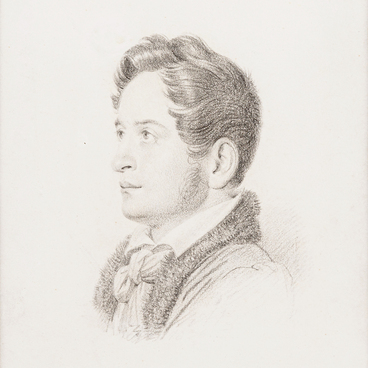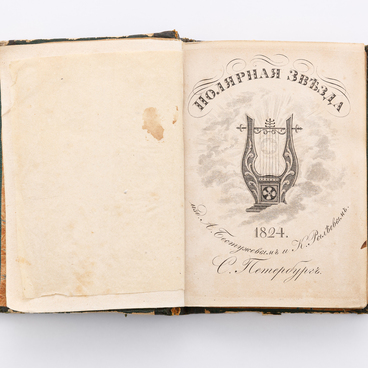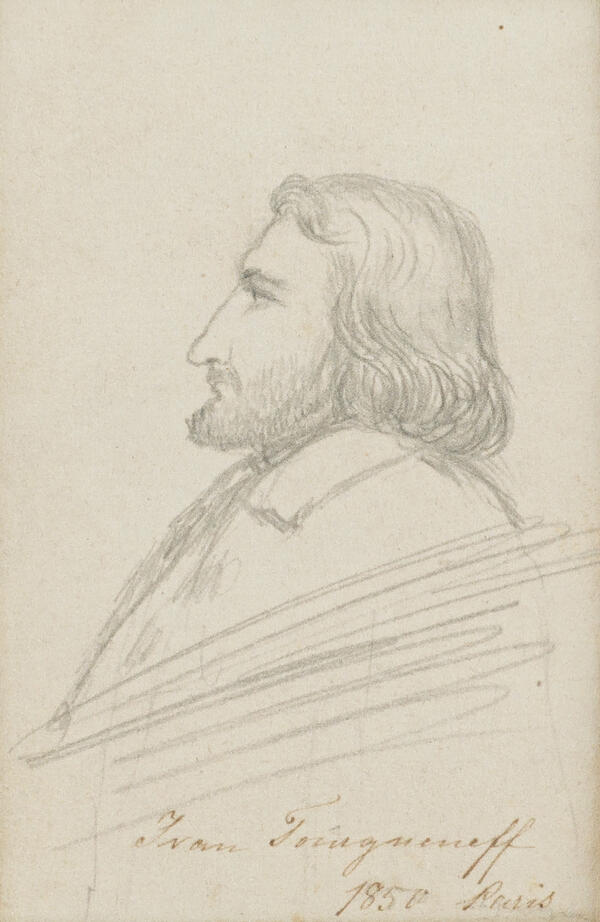The
portraits of Alexander Herzen’s parents were painted by Ivan Letunov, a serf
artist of the writer’s uncle Lev Yakovlev, also known as the Senator. Ivan
Letunov taught little Sasha how to draw. Nowadays, the original portraits
belong to Michel Herzen, the great-grandson of Alexander Herzen, and are kept
in Switzerland. Copies made by the writer’s daughter Natalya were donated to
the museum by Natalya Petrovna Herzen and Léonard Rist, the great-grandchildren
of the writer, in 1982. Léonard Rist attached a note in French to the back of
the portrait,
Portrait of Ivan Yakovlev, the writer’s father
A copy of a portrait by Tata, based on the original oil on copper painting, possibly by Letunov, a serf of Lev Yakovlev (the Senator).
In 1863, Alexander Herzen wrote to his relatives that he had sent portraits to his daughter,
The ship with our possessions was unable to sail because of a storm <…>. There is one thing that I would be particularly sorry to lose: Tata asked for the portraits of Iv<an> Al<exeyevich> and Mom, and I have sent them.” Alexander Herzen wrote in “My Past and Thoughts”, “My father had scarcely been in the service at all <…> he entered the Izmaylovsky regiment as a sergeant at sixteen, served until the accession of Paul, and retired with the rank of captain in the Guards. In 1801, he went abroad and remained until the end of 1811, wandering from one country to another. He returned with my mother three months before my birth…
The writer’s mother Henriette Wilhelmina Luisa Haag was born in Stuttgart. Her father was a minor German official. After his death in 1805, his family with three children was left with no means of support. In 1811, the young Luiza Haag left Germany to live in the house of the wealthy Russian landlord Ivan Alexeyevich Yakovlev. In Russia, she became known as Luiza Ivanovna. The Russian nobleman never married her, and their son Alexander Herzen was born out of wedlock in 1812. This is why he was given the surname “Herzen” from the German word “Herz” meaning “heart”.




